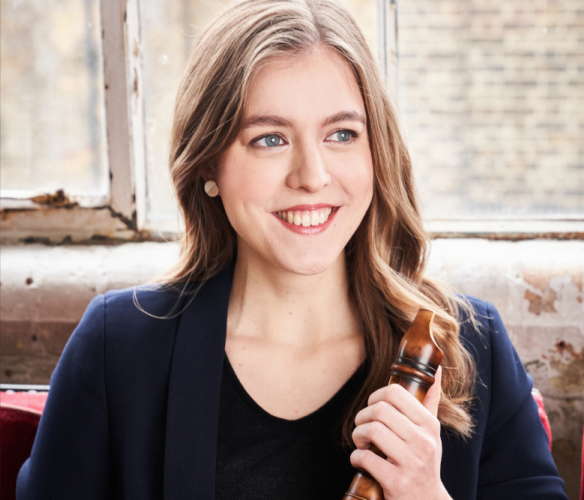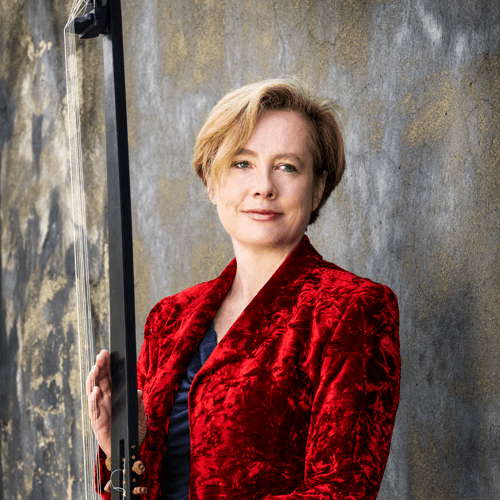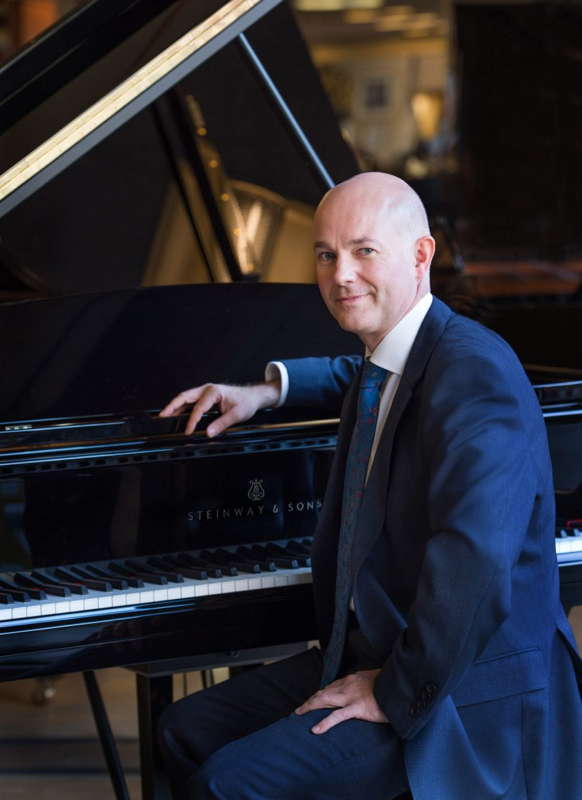ARTICLES BEING VIEWED NOW:
- Régine Crespin
- Hector Berlioz
- Ruth Railton
- Marián Varga
- Profile. A Very Positive Conductor - Paul Bodine talks to Los Angeles Opera's Music Director Designate, Domingo Hindoyan
 DISCUSSION: John Dante Prevedini leads a discussion about Music and the Visual World, including contributions from Celia Craig, Halida Dinova and Yekaterina Lebedeva.
DISCUSSION: John Dante Prevedini leads a discussion about Music and the Visual World, including contributions from Celia Craig, Halida Dinova and Yekaterina Lebedeva.
- teaching
- Metropolitan Opera House
- Adrienne Arsht Center for the Performing Arts
- Jehan Alain
- Johann Strauss Senior
- Berberian
- Passamezzo antico
- Tania León
The Early Bird Arrives
Two more concerts at the 2021 Buxton Festival, reviewed by MIKE WHEELER
As well as playing theorbo with the Dunedin Consort in Dido's Ghost (see separate review), Elizabeth Kenny joined recorder-player Tabea Debus on lute and baroque guitar for this recital – St John's Church, Buxton, UK, 12 July 2021.
Debus began unaccompanied with the anonymous fourteenth-century 'Lamento di Tristano', gracefully putting it across as a love song without words that could easily have been by Guillaume de Machaut. 'La Rotta', a quicker variant of the same tune, was engagingly nimble.

Tabea Debus
She and Kenny then joined forces in a vigorous, light-footed Ciaconna medley, drawing on chaconnes by various early seventeenth-century Italian composers including Monteverdi. A similar amalgam, put together by Debus, combined various versions of the popular sixteenth-century tune known variously as 'La Monica' and 'Une jeune fillette', Spirited playing matched the increasingly florid lines and textures.

Elizabeth Kenny in 2019
As an example of present-day writing for recorder Debus played Gareth Moorcraft's Diaries of the Early Worm, composed, she told us, specially for this programme. Based on troubadour tunes, it involved techniques including slides and holding the recorder sideways to create breath effects. An engaging miniature tone-poem, it ended with Debus delivering a pin-sharp final staccato peck as, in her words, 'the early bird arrives'.
As a snapshot of Dowland's popularity, and in particular that of his celebrated Lacrimae pavan, Debus and Kelly gave a graceful account of variations on it by German composer Johan Schop (1590-1667). Debus then showed what she could do with three movements from J S Bach's French Suite No 2 in C minor, adopting harmonic and contrapuntal techniques from his solo violin, cello and flute works. To transfer keyboard writing to a solo recorder so convincingly was quite an achievement.
The baroque guitar is fairly quiet by nature, but in a chaconne by Francesco Corbetta, who did much to establish the guitar in seventeenth-century courtly circles, Kenny demonstrated how it was also capable of kicking up its heels vigorously. We then skipped back to the sixteenth century again for the vigorous virtuoso show piece that is Diego Ortiz's second Recercada. Kenny gently strumming in the background as Debus introduced it was a nice touch. 'Greensleeves', in another of Debus' mash-ups of different versions, was the lively encore.
Standing in at very short notice for an indisposed Martin Roscoe, Charles Owen produced an appealing programme mixing intimacy with the grand statement – St John's Church, Buxton, UK, 12 July 2021.

Charles Owen
Debussy wrote Children's Corner for his three-year-old daughter Chouchou. Owen honoured its blend of nursery innocence and pianistic sophistication, suggesting the baroque ancestry of the rippling figures in 'Dr Gradus ad Parnassum', and bringing out the gamelan echoes in 'Jumbo's Lullaby'. 'Serenade of the Doll' was mechanical, as Debussy asked; so, too, was 'The Snow is Dancing', with Owen making sure there was just enough sparkle. 'The Little Shepherd' was suitably plaintive, and 'The Golliwog's Cakewalk' was made to sound almost like Scott Joplin.
Owen launched Chopin's Barcarolle with a commanding introduction, before settling into the swaying rhythms and song-like main theme. He also touched on some insistently driving undercurrents, while keeping faith with the luminosity of Chopin's sound-world.
That of Liszt's Bénédiction de Dieu dans la Solitude (God's blessing in solitude) is broadly similar in some respects, at least the shimmering figuration of the opening. Owen sketched that in delicately before moving on to the big-boned Lisztian rhetoric that followed. He made something ethereal of the soft chimes book-ending the central section.
The deep tranquillity he found in the final bars led naturally into the start of Beethoven's 'Moonlight' Sonata, which followed with barely a break. The first movement had a sombre quality, and the second was a gently skipping dance. Owen made a fierce whirlwind of the finale, making a powerfully tense moment of the pause before the vehement pay-off.
Copyright © 28 July 2021
Mike Wheeler,
Derby UK



